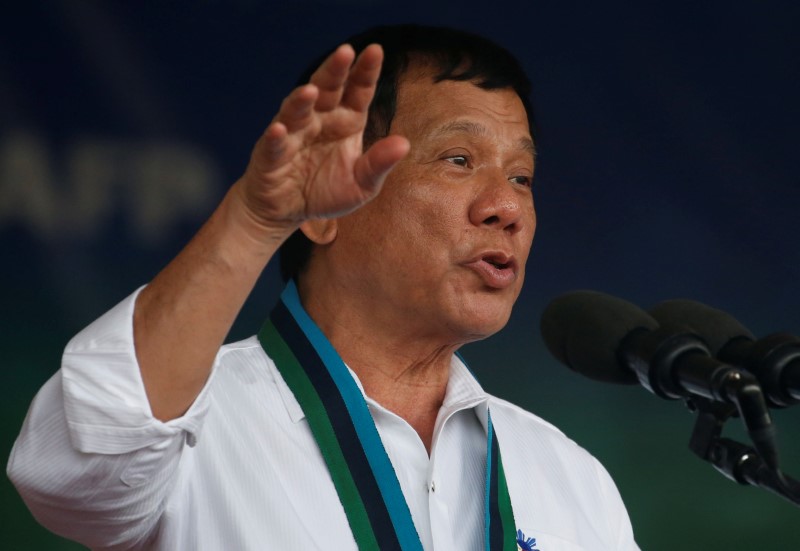MANILA (Reuters) - Roman Catholic churches in Manila on Sunday read a prayer against Philippine President Rodrigo Duterte's plans to re-impose the death penalty on heinous crimes, including drug-related offences.
Last week, the justice panel in the lower house of Congress approved a legislative measure to bring back state-sanctioned executions on at least 20 crimes, including rape with murder and kidnapping-for-ransom. The bill may be passed before Christmas.
A prayer issued by Cardinal Luis Antonio Tagle, Manila's archbishop, was read in churches across the city on Sunday and called for help to work against the death penalty.
"There is in our land a cry for vengeance and a move to fill up death rows and kill offenders but disguised as a call for justice," the prayer read. "Let true and lasting justice spring forth."
In 2006, then President Gloria Macapagal Arroyo abolished the death penalty for crimes involving drugs, rape and arson. Duterte and his supporters have sought to reinstate the punishment as a deterrent to rising crime and drug use.
Catholic bishops also oppose a separate plan in Congress to reduce the minimum age for criminal liability to nine from 12 currently. They fear both the reduction in the liability age and expanded use of capital punishment could escalate violence related to the current anti-drugs campaign.
The Catholic church has long opposed the death penalty in the Philippines. About 80 percent of the country's more than 100 million inhabitants is Catholic.
Archbishop Socrates Villegas, head of the Catholic Bishops Conference of the Philippines, had issued a statement strongly criticizing the rising death toll in the war of drugs, saying government must respect the dignity of life and human rights.
More than 2,000 people have died in police operations against illicit drugs since July 1 when Duterte assumed the presidency. Those killed were mostly street level peddlers and users, who police said had resisted arrest.
More than 3,000 others were killed by motorcycle-riding masked men and vigilantes during the same period, but Duterte has denied the police are conducting extrajudicial killings.
Last week, senators, including the president's close allies, criticized the way Duterte has carried out his anti-narcotics campaign, saying it should be done within the limits of the law and that he must also punish erring police officers.
Senators said in a report that while they had found no clear proof that the rising number of extrajudicial killings was related to state-sponsored actions, they have told Duterte to observe due process and give the accused their day in court.
